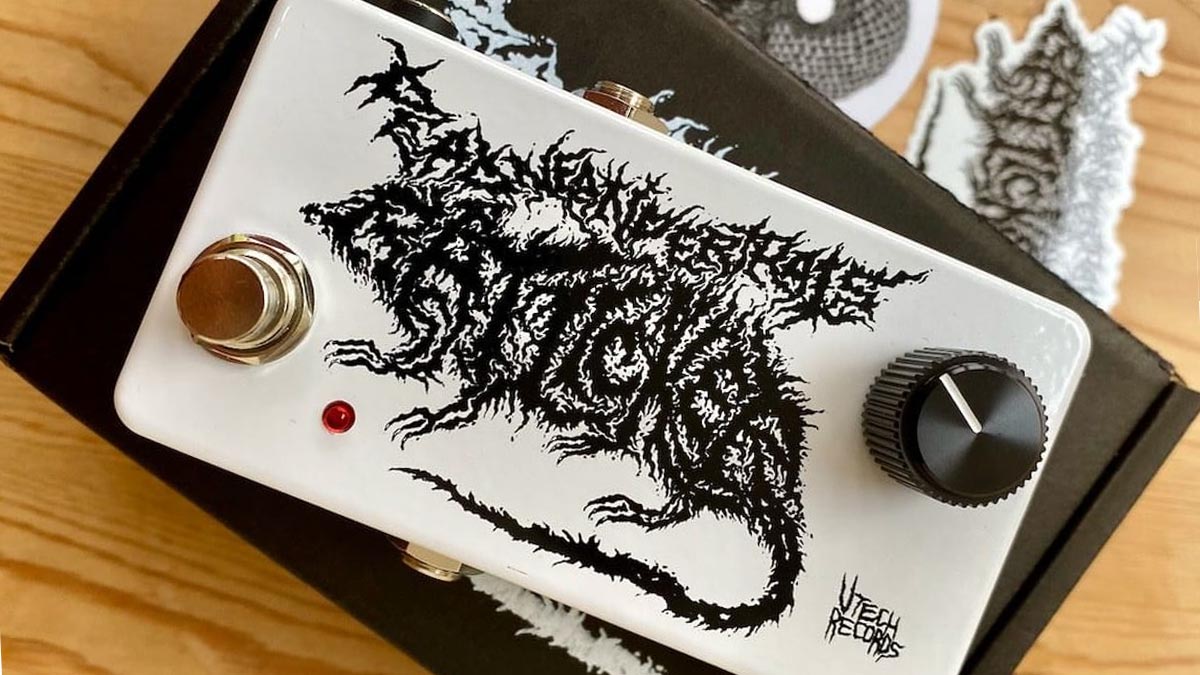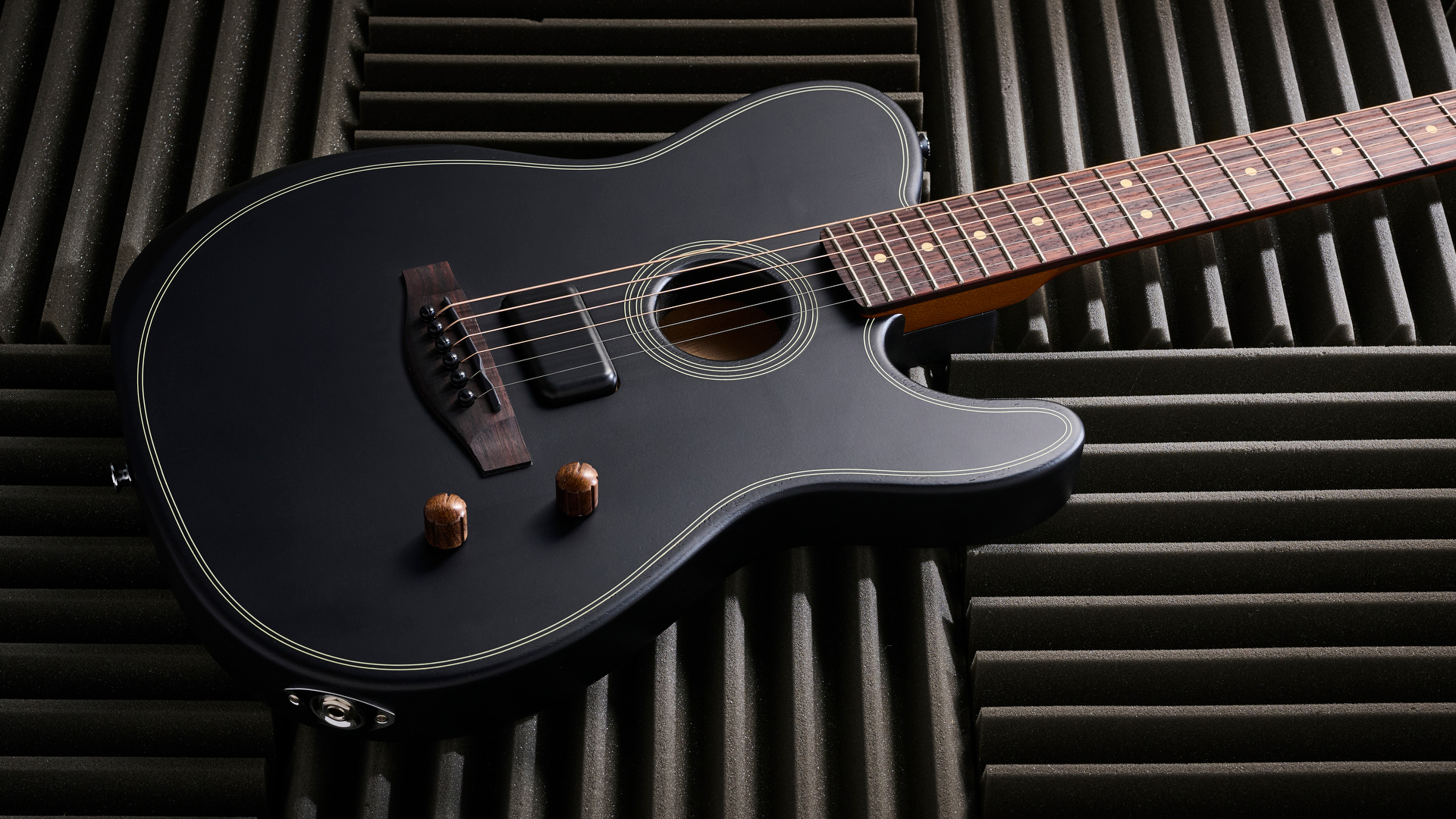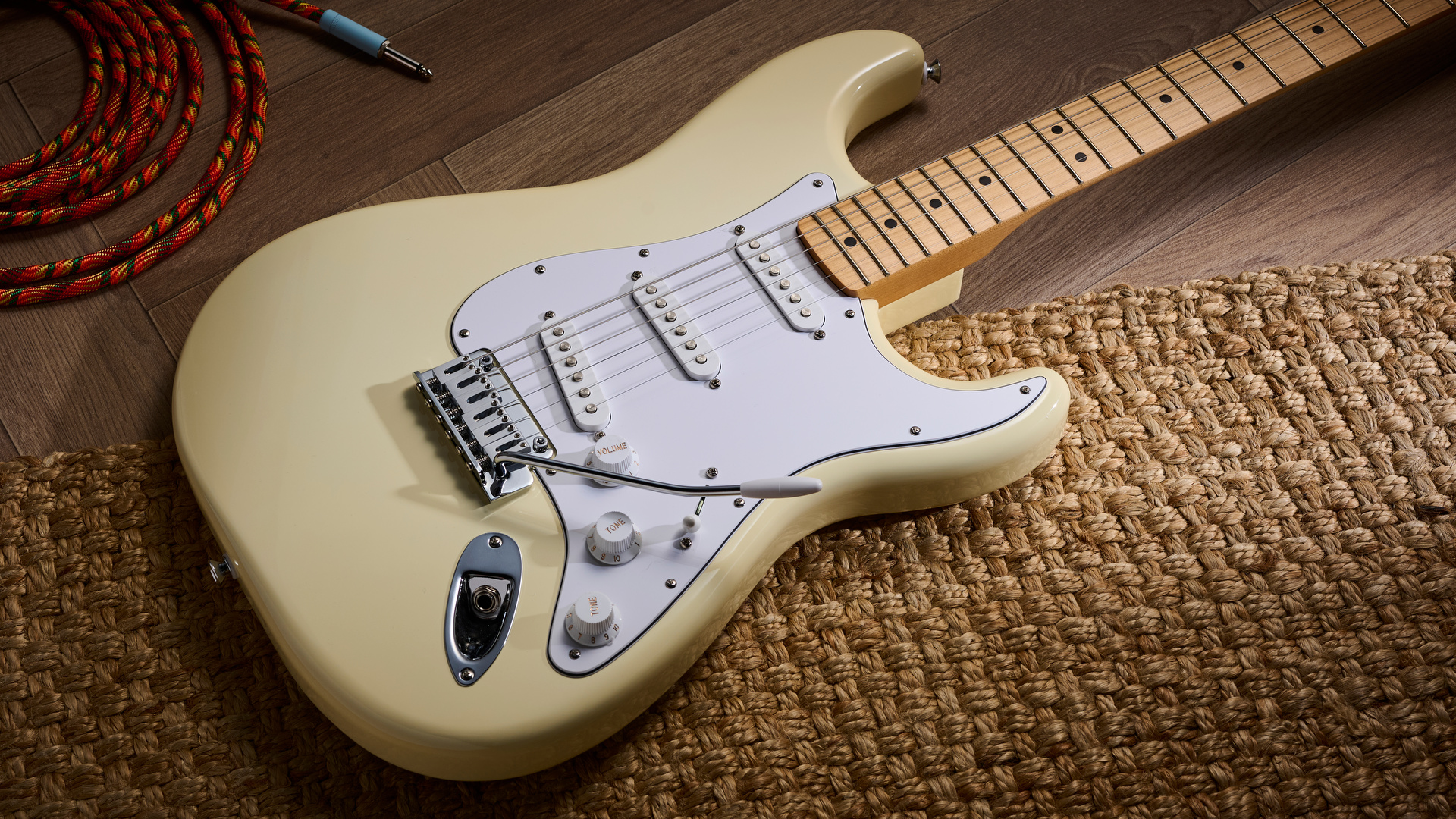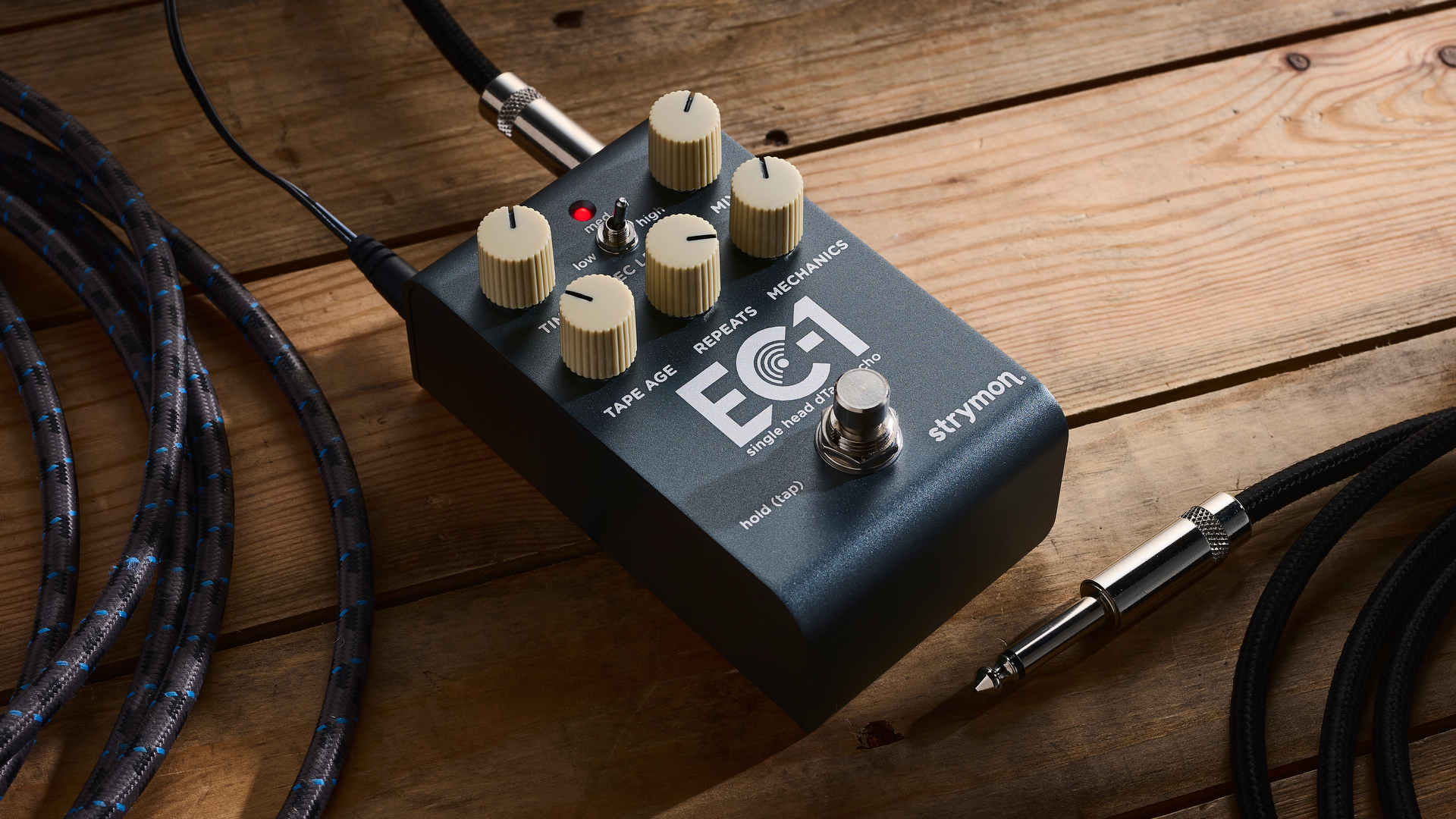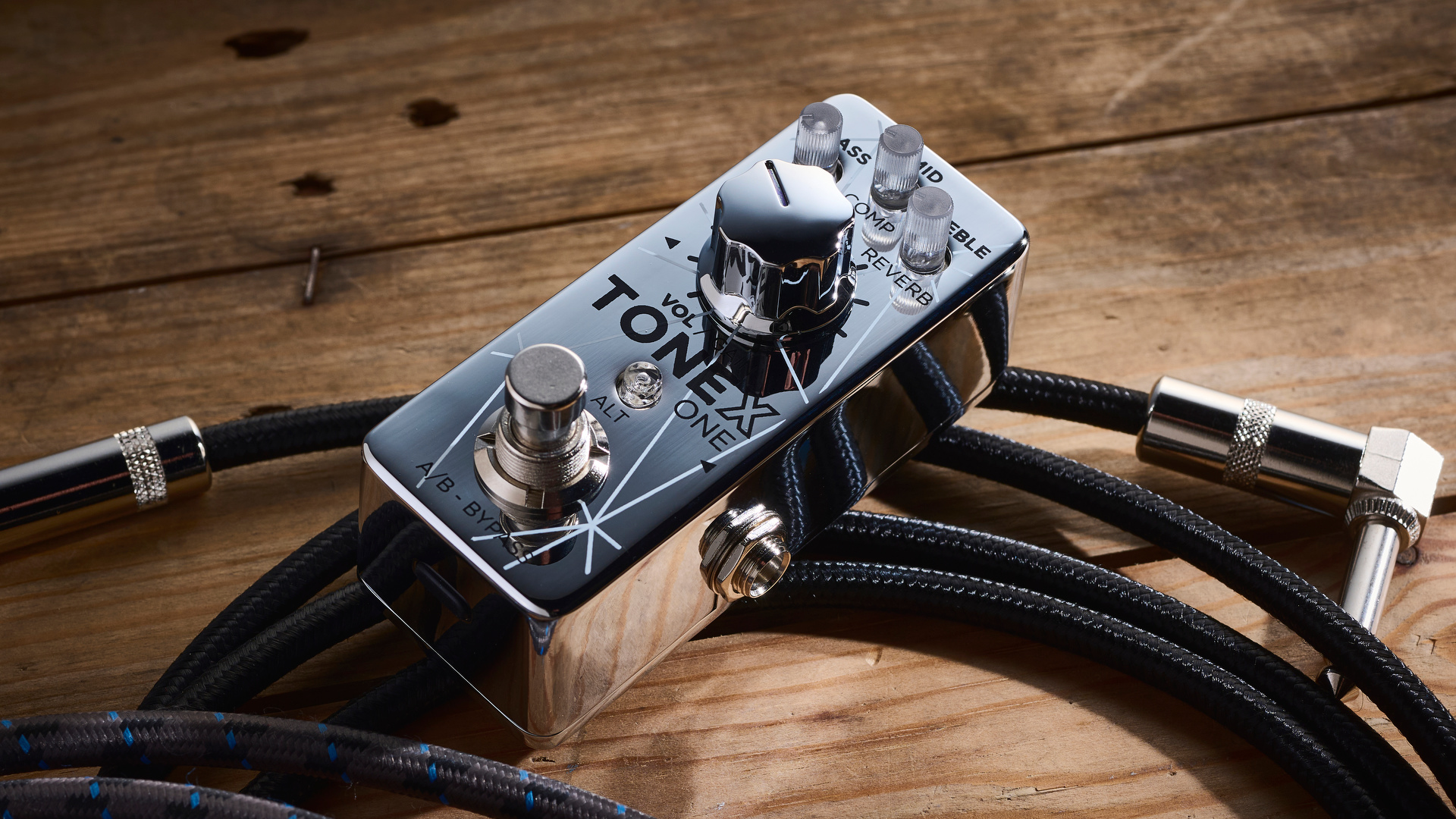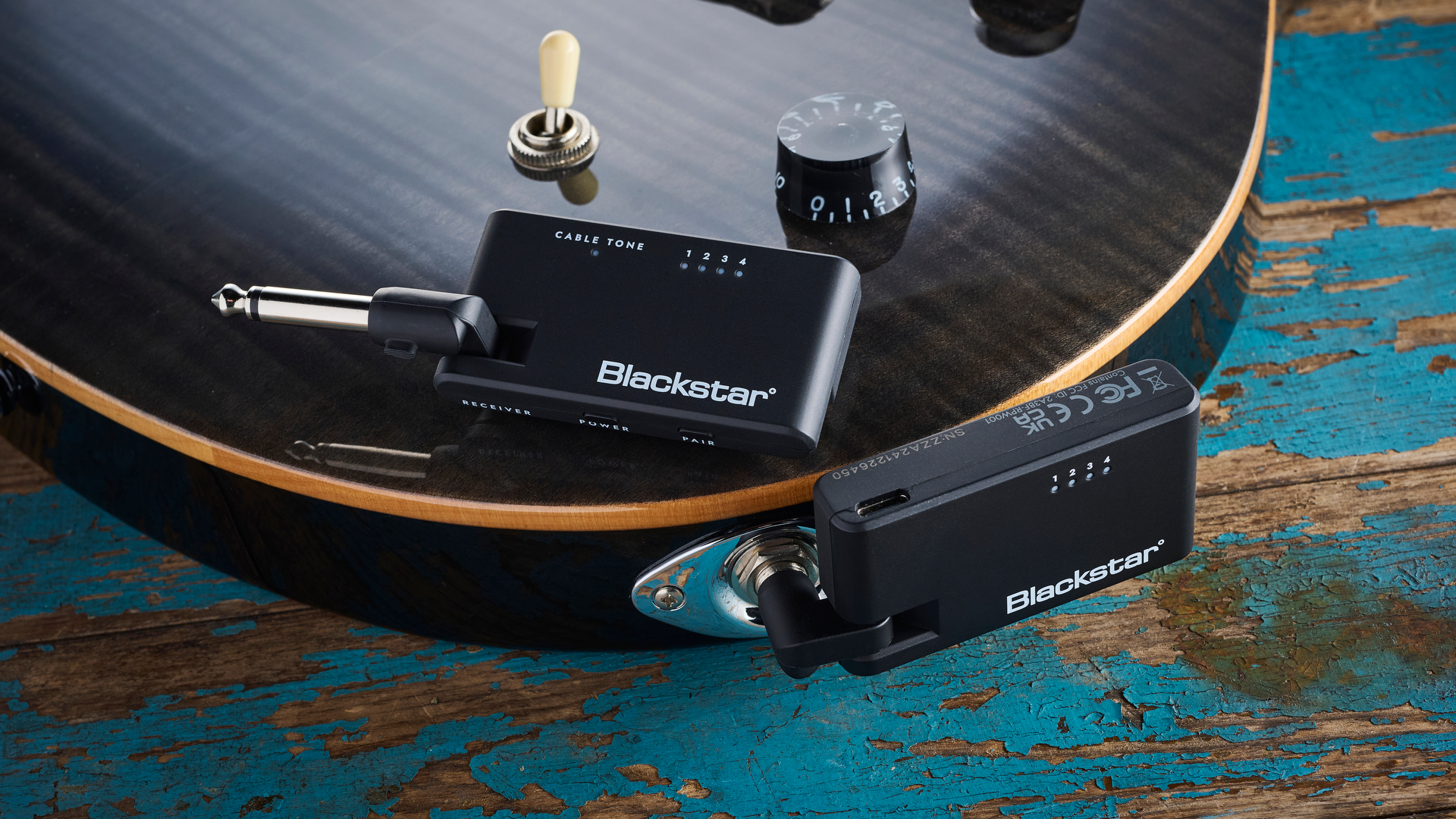Guitar World Verdict
An uncomplicated, filthy take on the RAT tone
Pros
- +
One-dial ‘set-and-forget’ operation.
- +
Flexibility via internal trim pots.
- +
Heavy, sludgy players will love it.
- +
Hand-wired.
- +
Great price.
Cons
- -
If you’re after plentiful tone-sculpting optionality, look elsewhere.
You can trust Guitar World
Some of the most memorable pedal launches have been ones that are collaborations between pedal builders and artists.
Recently, EarthQuaker Devices partnered with Boris guitarist Wata for the Hizumitas, a sonic replica of her beloved Elk BM Sustainar, a rare and mind-numbing fuzz pedal. And on a broader scale, MXR teamed up with RATM’s Tom Morello for the Power 50 Overdrive, a pedal that aims to recreate the preamp sound of his one-and-only Marshall JCM800.
And while there are plenty more to list, let’s just say I like to be made aware of the lesser-known collaborative releases – especially from those on the fringes of the indie scene.
One fine example is the Utech Records Rat Licker Distortion, a bare-bones recreation of the beloved Pro Co Rat distortion pedal circuit in a stompbox, made all the more legit with the illegible “doom metal logo” rat graphic on its face.
Utech Records is an independent record label based in Milwaukee, where owner and operator Keith Utech has released more than 180 titles worldwide. The Rat Licker Distortion is a joint effort between Utech and Otto (an avid Rat pedal enthusiast) from the Dead Neanderthals on Utech’s label, and Matt Shea at IdiotBox Effects, who designed and hand-wired the pedal.
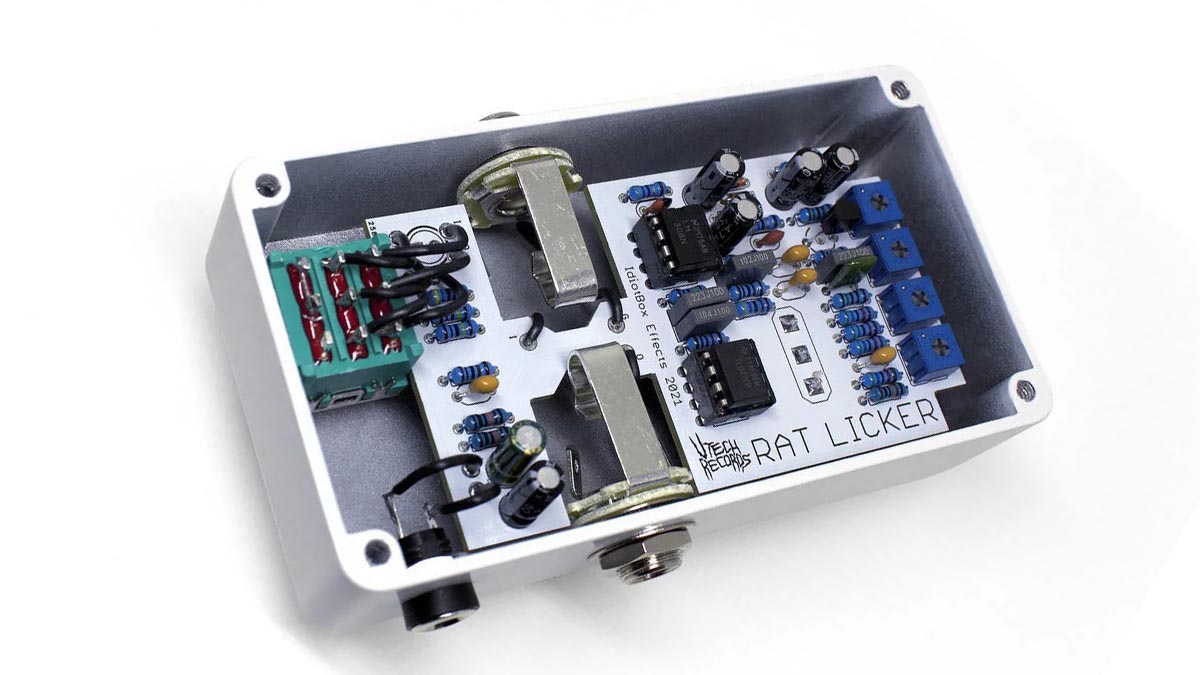
Otto wanted an uncomplicated single-knob pedal that delivered the heavily saturated and sludgy distortion of the Pro Co Rat. And for sure, the Rat Licker is about as straightforward as you can get with a soft-click footswitch that turns the pedal on and off, and a blend knob that allows you to add the Rat Licker’s distortion incrementally to your input signal.
Its overwhelming wall-of-sludge saturation will undoubtedly appeal to bassists and guitarists who dabble in doom metal or drone rock
So, obviously, you must be wondering, “That’s it?” Well, no. The idea of the pedal was to be a “set and forget” stompbox, so for the tweakers, Shea embedded the necessary Rat controls (Distortion/Filter/ Volume) as three internal trimpots along with one trimpot (Direct) to boost the input signal on the inside of the pedal. For its distinct tone, the Rat Licker uses LM308 and TL072 chips on its PCB board and features true bypass switching.
Utech notes the Rat Licker was inspired by the “distortion-drenched sound of the Dead Neanderthals’ Blood Rite EP,” and honestly, if you need a good idea of what this pedal sounds like, give that record a spin...
The Rat Licker nails the Pro Co Rat’s familiar shaggy distortion with fuzzy overtones, but what’s more, its overwhelming wall-of-sludge saturation will undoubtedly appeal to bassists and guitarists who dabble in doom metal or drone rock, and avant-garde noise purveyors.
The Rat Licker is already on its third production run, so snatch up one of these rodent boxes to add some much-deserved filth to your tone.
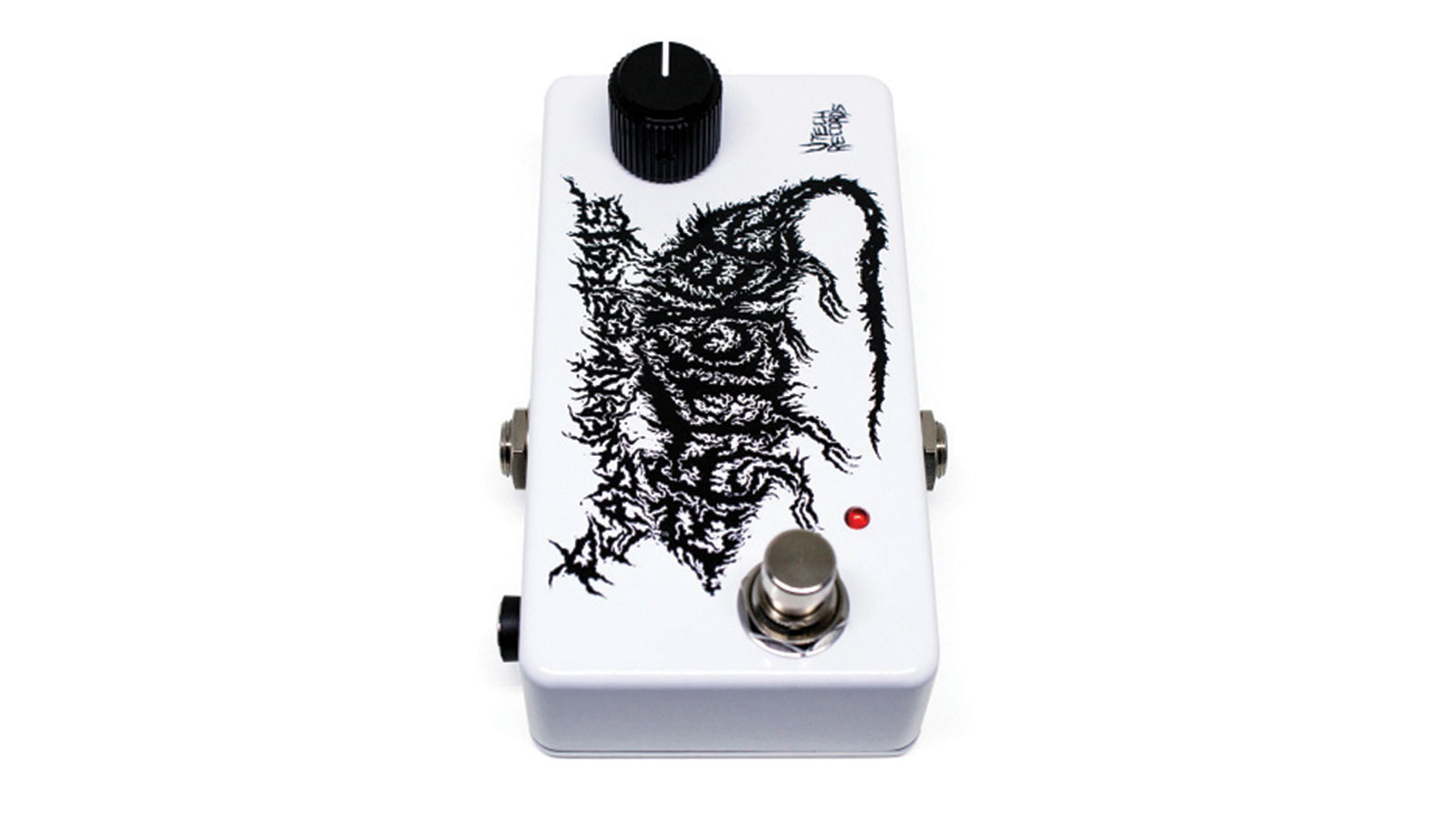
Specs
- PRICE: $119
- TYPE: Distortion pedal
- CONTROLS: Blend knob, internal trim pots for Distortion, Filter, Volume and Direct (input signal)
- SOCKETS: 1x input, 1x output, power
- BYPASS: True bypass
- POWER: Center negative 2.1mm BOSS style power input (6.5mA draw)
- CONTACT: Utech Records
Paul Riario has been the tech/gear editor and online video presence for Guitar World for over 25 years. Paul is one of the few gear editors who has actually played and owned nearly all the original gear that most guitarists wax poetically about, and has survived this long by knowing every useless musical tidbit of classic rock, new wave, hair metal, grunge, and alternative genres. When Paul is not riding his road bike at any given moment, he remains a working musician, playing in two bands called SuperTrans Am and Radio Nashville.
“The original Jordan Boss Tone was probably used by four out of five garage bands in the late ’60s”: Unpacking the gnarly magic of the Jordan Boss Tone – an actual guitar plug-in that delivers Dan Auerbach-approved fuzz
“This is a powerhouse of a stompbox that manages to keep things simple while offering endless inspiration”: Strymon EC-1 Single Head dTape Echo pedal review
